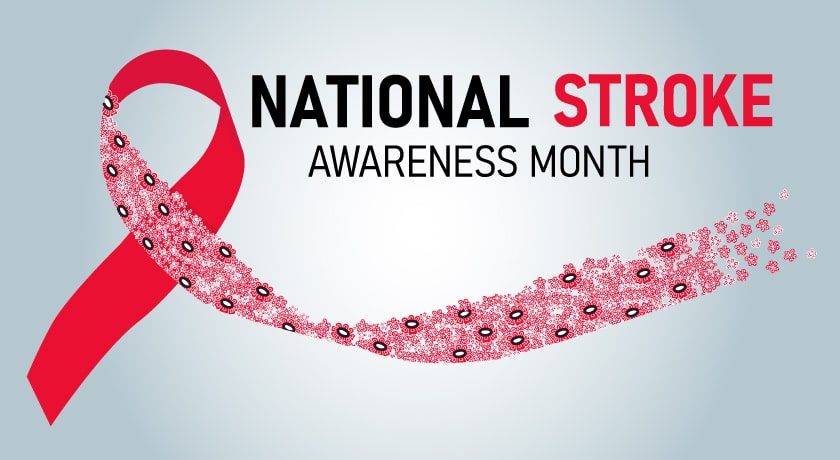Symptoms of a stroke typically happen quickly, causing brain damage within minutes. However, immediate medical attention increases an individual’s chance of full recovery.
In recognition of National Stroke Awareness Month, learn these F.A.S.T. (face drooping, arm weakness, speech difficulty, and time to call 911) tips to recognize the signs of a stroke and when to call for emergency care.
Face drooping
Facial droop is oftentimes one of the first symptoms of a stroke and can happen suddenly. If you are with someone you suspect is having a stroke, ask the person to smile to see if one side of their face droops downward. If you are alone, you can do this same exercise in the mirror.
Arm weakness
Muscle weakness in the arms is common during a stroke. One side of the body is usually affected, leaving the other with full mobility.

“A stroke occurs on one side of the brain. For example, the left brain controls the right body and the right brain controls the left body,” explained S. Keisin Wang, MD, vascular surgeon with UT Physicians and assistant professor in the Department of Cardiothoracic & Vascular Surgery at McGovern Medical School at UTHealth Houston.
Speech difficulty
A sudden communication problem is a clear sign of a serious health concern. The symptoms can range from slurred speech to difficulty understanding or following a conversation. To test for this, ask an individual to repeat a simple phrase back to you.
Time to call 911
If you or a loved one are experiencing any of the above symptoms, it’s time to call 911.
“A stroke is a sudden deprivation of arterial blood flow to a section of the brain. If blood flow is deprived for long enough, the targeted section dies and any injury becomes permanent,” said Wang. “Therefore, getting to a qualified medical center in a timely manner to be treated becomes essential to the recovery of function.”
Attempting to drive yourself to the hospital can be extremely dangerous. Having someone else drive you is also not advisable. Medical personnel can begin potentially lifesaving treatment while in transit to an emergency facility — meaning no precious time is wasted.
For additional information on the F.A.S.T. signs of a stroke, visit this page.



